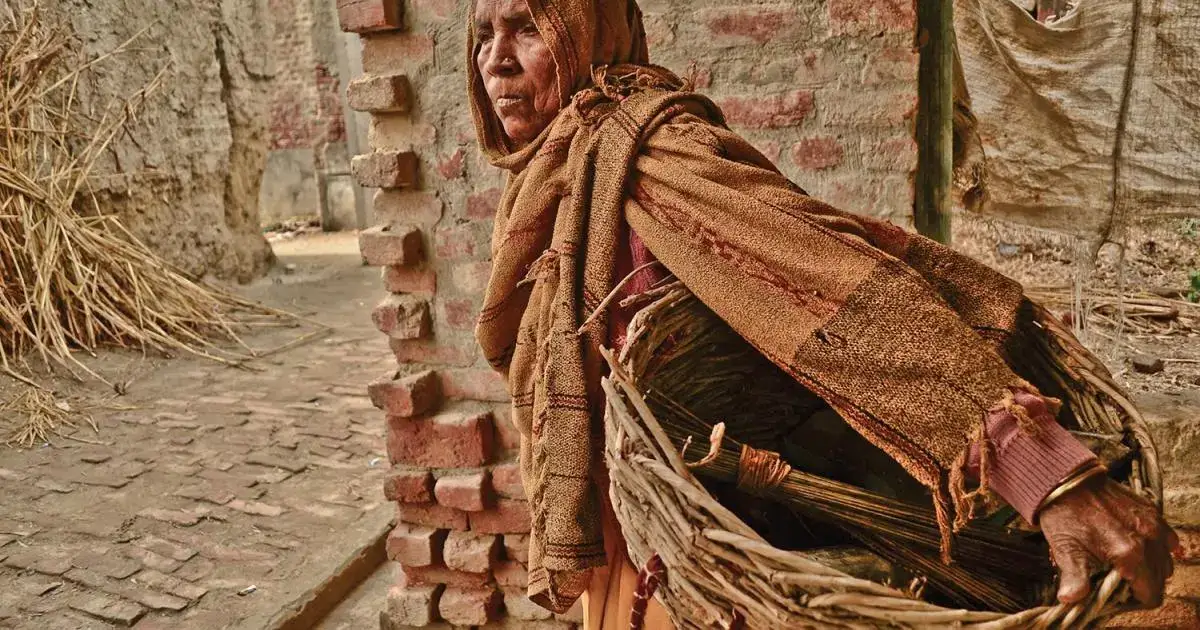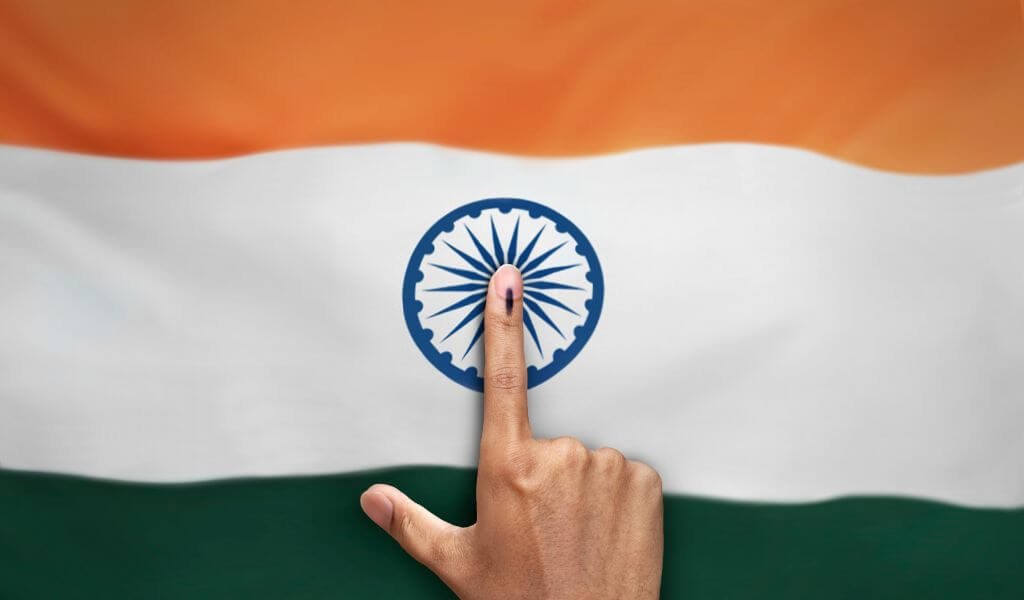Recap and Introduction

Parts 1 and 2 of this series examined how reservation and corruption, rooted in electoral incentives, undermine India’s meritocracy, governance, and moral fabric. Reservation’s politicisation entrenches caste divisions, while corruption’s electoral roots erode public trust and resources. Part 3 completes the triad by exploring inflation, the “silent robber” that erodes purchasing power, deepens poverty, and widens inequality through populist policies and corruption’s black money. This article synthesises the triad’s interconnections, highlighting electoral politics as the binding force, and proposes bold reforms to restore meritocracy, accountability, and economic stability. By addressing these systemic challenges, India can break the cycle of inefficiency and division, fostering a just and prosperous future. Join us as we delve into inflation’s causes, consequences, and pathways to reform.
Section III: Inflation – The Silent Robber

Causes and Electoral Connections
Inflation, the persistent rise in prices, erodes the purchasing power of ordinary Indians, disproportionately affecting the poor. While global factors like oil prices contribute, domestic policies rooted in electoral politics are significant drivers. Populist measures, such as loan waivers, subsidies, and freebies, are designed to garner votes but strain public finances. Populist fiscal policies, driven by electoral incentives, exacerbate fiscal deficits, fueling inflation that significantly harms the poor by increasing money supply, driving up prices, and destabilizing the economy.
Similarly, corruption generates black money through bribery, embezzlement, and kickbacks, creating a parallel economy estimated at 20-30% of India’s GDP. This unaccounted wealth fuels demand-pull inflation, while inflated contracts and misallocated resources contribute to cost-push inflation. By reducing tax revenue, black money necessitates further government borrowing, exacerbating fiscal deficits. These dynamics are deeply tied to electoral politics: reservation consolidates caste-based vote banks, often targeted with freebies, while corruption funds campaigns that promise quotas and handouts, generating black money that further drives inflation. This creates a vicious cycle where freebies and black money deepen poverty, necessitating more handouts that perpetuate economic instability. Inflation’s economic toll widens inequality, as the wealthy hedge through investments while the poor face declining living standards. Socially, it fosters insecurity and materialism, undermining societal ethics. The triad’s interconnectedness—reservation fueling vote-bank politics, corruption generating black money, and inflation eroding purchasing power—reflects a governance model prioritising short-term electoral gains over long-term national interests.
The Vicious Cycle of Freebies and Poverty

The Central government provides free food grains to approximately 81.35 crore people under the National Food Security Act (NFSA) and Pradhan Mantri Garib Kalyan Anna Yojana (PMGKAY), covering Antyodaya Anna Yojana (AAY) households and Priority Households (PHH) with 5 kg of food grains per person per month. This policy exemplifies populist measures driven by electoral incentives. While aimed at alleviating hunger, such freebies contribute to fiscal deficits that fuel inflation, deepening poverty and necessitating further handouts. This creates a vicious cycle: populist measures, intended to secure votes, exacerbate economic instability, pushing more citizens into poverty and increasing reliance on government aid. Reports highlight that such policies widen inequality, as the wealthy leverage inflationary gains through investments, while the poor face eroding purchasing power. This dynamic, rooted in electoral politics, perpetuates the triad of reservation, corruption, and inflation, entrenching a socio-economic divide where the rich grow richer and the poor poorer, undermining India’s moral and economic fabric.
Also Read:
Reservation, Corruption, & Inflation: Electoral triad undermining India #1
Reservation, Corruption, & Inflation: Electoral Triad Undermining India #2
Economic and Social Consequences
Inflation erodes real incomes, pushing millions into poverty. Household surveys indicate that a significant portion of Indian families spend over half their income on food, making them vulnerable to price shocks. Inflation exacerbates inequality, as detailed in Section IV, with the wealthy hedging through investments while the poor face declining living standards. Estimates suggest that India’s top 1% hold a disproportionate share of wealth, while inflation further marginalises the bottom 50%. Socially, inflation deepens economic disparities, fostering resentment and fragmenting communities. This economic instability, driven by populist policies tied to political incentives, reinforces the triad by necessitating further reservation promises and corrupt practices to fund campaigns, perpetuating a cycle of poverty and inequality that undermines India’s socio-economic fabric.
Moral Implications
The pursuit of populist policies represents a moral failing as it amounts to electoral inducements for electoral gains over economic stability. This fosters a cycle of dependency, as citizens rely on handouts rather than sustainable opportunities. Inflation breeds insecurity and distrust, reinforcing a materialistic culture where wealth is seen as the only buffer against economic volatility, further eroding societal ethics.
The Convergence in Electoral Politics
The triad converges through electoral politics, where reservation secures vote banks, corruption funds campaigns, and populist spending fuels inflation. Rational choice theory explains this, with politicians acting as rational actors prioritising electoral success, creating a tragedy of the commons where short-term gains lead to long-term societal losses. The World Bank’s 2024 governance indicators highlight India’s lag in controlling corruption and government effectiveness, reflecting this systemic failure.
Section IV: Pathways for Reform

The triad of reservation, corruption, and inflation, stemming from vote-driven policies, demands bold systemic reforms to restore India’s moral and socio-economic fabric. Addressing these interconnected issues requires dismantling the structural incentives perpetuating short-sighted governance, inefficiency, and ethical decay. The following proposals target the root causes, prioritising meritocracy, accountability, and sustainable development for a resilient, equitable future. To fully grasp the urgency of these reforms, it is critical to first examine the economic toll exacted by the triad’s inefficiencies and misaligned incentives.”
Economic Costs of the Triad
Economically, the triad stifles India’s growth potential. Reservation compromises institutional efficiency by prioritising caste over merit, leading to underperformance in public services, and educational, scientific and research institutions. Corruption diverts resources from development, with estimates suggesting it significantly reduces economic output. Inflation, fueled by populist policies and black money, erodes purchasing power, disproportionately harming the poor and perpetuating inequality. The combined effect of these issues limits India’s development and global competitiveness, as misallocated resources and eroded institutional trust hinder progress. This economic stagnation, rooted in electoral incentives, reinforces the triad’s destructive cycle, necessitating reforms to restore vitality and equity.
Banning Reservation in Teaching Jobs for Educational Justice

Teachers, scientists, and researchers form the backbone of India’s intellectual and societal progress, shaping the minds and innovations that drive equitable development. Reservation, originally intended to uplift marginalized communities, has been misaligned by electoral politics, undermining meritocracy in these critical roles. This compromises the quality of education, particularly in public institutions, where competence is essential for fostering critical thinking and innovation.
While abolishing reservation entirely would ideally restore a fully merit-based system, such a move is politically and socially infeasible due to its deep entrenchment in India’s electoral and cultural fabric. Instead, an urgent and targeted reform—banning reservations in teaching, scientific, and research positions—offers an immediate, achievable step to deliver true educational justice. This reform prioritises meritocracy in roles that directly influence India’s future, ensuring quality education for all.
Poor and underprivileged sections, such as SCs, STs, and OBCs, rely heavily on public education due to limited access to costly private institutions. When teachers are selected based on caste rather than competence, these communities suffer most, as underqualified educators lead to diminished learning outcomes and reduced social mobility. Meritorious teachers, chosen for their academic excellence and pedagogical skills, are essential to empower disadvantaged students, fostering critical thinking, innovation, and opportunity.
Studies indicate that quota-driven appointments in higher education contribute to academic challenges, perpetuating inequality for the very groups reservation aims to uplift. Amending Article 16 of the Constitution to exempt teaching, scientific, and research roles from reservation would ensure that only the most qualified individuals shape India’s intellectual future. This reform delivers real educational justice by enhancing standards in public institutions, directly benefiting marginalized students.
This reform also weakens the triad of reservation, corruption, and inflation. By removing caste-based quotas in these critical roles, it reduces the electoral incentive for political parties to leverage such positions for vote-bank politics. Additionally, prioritizing transparent, merit-based recruitment curbs corruption by minimizing manipulative practices, such as fake caste certificates. By fostering a meritocratic educational system, this reform aligns with the original intent of affirmative action, laying the foundation for equitable development and breaking the cycle of inefficiency and division perpetuated by the triad.
Transforming Electoral Cycles

Frequent five-year election cycles are the linchpin of India’s systemic crises, perpetuating the destructive triad of reservation, corruption, and inflation. These short cycles drive vote-bank politics, encouraging caste-based reservation expansions to secure electoral support. They fuel campaign-driven corruption, as politicians engage in unethical practices to fund costly elections. Additionally, populist fiscal policies, such as loan waivers and subsidies, destabilize the economy, exacerbating inflation and deepening poverty, particularly for marginalized communities.
To break this cycle, a transformative reform is proposed: extending democratic election cycles to 25 years. This extended tenure would liberate governance from short-term electoral pressures, enabling leaders to prioritize long-term national interests. Policies could focus on merit-based reservation reforms, robust anti-corruption frameworks, and fiscally responsible measures, reducing the populist incentives that perpetuate the triad’s inefficiencies and divisions.
This 25-year cycle proposal, though bold, should not be misconstrued as outlandish. It is a rigorously conceptualised strategy to disrupt the electoral dynamics fueling systemic crises, grounded in the imperative for sustainable, socially cohesive, and accountable governance. Far from undermining democracy, it seeks to strengthen it through deliberate, long-term policy-making that prioritises national welfare.
To safeguard democracy, stringent checks and balances are essential. Independent oversight bodies, empowered to conduct mid-term performance audits, would monitor government actions transparently. Recall mechanisms, supervised by an independent judiciary, would allow citizens to remove underperforming leaders. Lifetime appointments to High Courts and the Supreme Court would insulate the judiciary from political influence, ensuring constitutional protections remain robust against autocratic drift.
Recognising potential resistance to a 25-year cycle, a 10-year electoral cycle could serve as an interim measure. Halving election frequency would curb populist excesses while maintaining democratic accountability, offering a practical step to build consensus for longer-term reform. This transitional approach acknowledges the political and social challenges of overhauling India’s electoral framework.
Critics may argue that extended cycles diminish voter agency or risk entrenching power. However, democracy thrives not through frequent elections alone but through accountable institutions, quality education, and governance prioritizing collective welfare. A 25-year cycle, with rigorous safeguards, would dismantle the electoral incentives fueling reservation, corruption, and inflation, fostering meritocracy, ethical governance, and economic stability.
This bold reform, paired with a 10-year transitional option, invites public debate to reimagine India’s electoral framework. By reducing the relentless pressure of short-term electoral gains, it paves the way for a just, prosperous, and cohesive future, where integrity and opportunity prevail over division and populism.
Reforming Reservation

To restore reservation’s original intent, India must shift to a needs-based system prioritising socio-economic disadvantage over caste. Restricting reservations to a single generation, in addition to excluding the creamy layer, would restore equitable distribution. This reform ensures benefits reach the most disadvantaged, aligning with affirmative action’s original goal. By breaking the cycle of entitlement, it mitigates the moral erosion caused by a system rewarding privilege, addressing a key facet of the triad’s impact on India’s social fabric.
Investments in education and skill development, such as expanding vocational training programs, can empower disadvantaged groups without perpetuating caste divisions. Evidence suggests that skill-based education bridges socio-economic gaps more effectively than quotas, fostering inclusion and reducing social tensions. This reform, by aligning affirmative action with its original goal, would mitigate the triad’s impact by curbing electoral-driven caste politics and promoting equitable development.
Leveraging Hereditary Vocational Skills for Economic Empowerment
The caste system has historically assigned hereditary vocations to communities, such as barbers, washermen, tailors, potters, weavers, carpenters, and cobblers, embedding specialized skills within these groups. These traditional occupations, often tied to socio-economic disadvantage, have been overshadowed by reservation policies driven by electoral politics. Rather than perpetuating quota-based dependency, leveraging these hereditary talents offers a sustainable path to empower marginalized communities economically.
The proposed reform focuses on modernising these caste-based skills through targeted vocational training tailored to contemporary market demands. For instance, weavers could be trained in advanced textile design, and carpenters in mechanized craftsmanship. Such programs would transform traditional skills into viable entrepreneurial opportunities, enabling communities to shift from job seekers to job creators, fostering self-reliance and wealth creation.
Implementation requires establishing dedicated finance corporations to support these communities. Low-interest loans, seed capital, and business mentorship would enable artisans to launch enterprises, such as cooperatives or small businesses. This approach builds on existing skills, ensuring scalability and relevance in modern markets while reducing dependency on reservation-driven handouts.
By becoming entrepreneurs, these communities can uplift their castes, breaking the cycle of caste-based divisions perpetuated by reservation policies. This reform aligns with the original intent of affirmative action by addressing socio-economic disadvantage without entrenching caste identities. It empowers marginalized groups to achieve economic independence, reducing reliance on populist measures that fuel inflation.
This strategy weakens the triad of reservation, corruption, and inflation. By diminishing the need for caste-based quotas, it reduces electoral incentives for political parties to exploit reservation for vote-bank politics. Transparent funding mechanisms curb corruption, ensuring resources reach intended beneficiaries. By fostering economic stability through entrepreneurship, this reform mitigates inflationary pressures, creating a sustainable path for social justice and national progress.
Series Conclusion

The triad of reservation, corruption, and inflation, driven by the relentless pressures of electoral politics, has systematically undermined India’s moral, political, and socio-economic fabric. Reservation, originally designed to uplift marginalised communities, has been distorted into a tool for vote-bank politics, fostering intra-community inequality through the rise of a privileged class and creamy layer (Part 1), entrenching caste divisions and fueling tensions that pit communities against each other in a zero-sum struggle for limited opportunities. Corruption, fueled by the financial demands of frequent elections, erodes trust in institutions, normalizes unethical behaviour, and fosters cynicism that weakens civic engagement. Inflation deepens poverty and economic disparities, compounding the triad’s toll on social cohesion and economic vitality. Together, these forces create a self-reinforcing cycle of inefficiency, ethical decay, and social fragmentation, stifling India’s potential for unity and progress.
This destructive cycle, rooted in short-term electoral incentives, demands bold systemic reforms to restore India’s ethical, political, and economic vitality. Extending democratic election cycles to 25 years, supported by robust checks such as independent oversight and recall mechanisms, would liberate governance from populist pressures, enabling policies focused on long-term national interests. Appointing judges to High Courts and the Supreme Court for lifetime tenures would strengthen judicial independence, safeguarding against autocratic drift. Reforming reservation by restricting benefits to one generation and excluding the creamy layer, while prioritizing socio-economic need over caste, would restore affirmative action’s original intent, ensuring benefits reach the truly disadvantaged. Banning reservations in teaching, scientific, and research positions would promote meritocracy, delivering educational justice to marginalized students reliant on public institutions. Leveraging hereditary vocational skills through targeted training and finance corporations can empower communities to become entrepreneurs, reducing dependency on quotas and freebies while fostering economic self-reliance.
These reforms, addressing the triad’s interconnections, require political will and societal commitment to prioritize integrity, merit, and stability over short-term electoral gains. By dismantling the structural incentives perpetuating reservation, corruption, and inflation, India can break this vicious cycle, fostering a just, prosperous, and cohesive nation. Only through such transformative change can India overcome the divisions and inefficiencies that hinder its progress, uniting citizens around shared values and equitable opportunities.
Which of the proposed reforms—extending election cycles, reforming reservation, or leveraging vocational skills—do you believe could most effectively break the triad’s cycle? Share your thoughts on reimagining India’s governance for a just and cohesive future.

